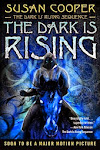I have joined a blogging group called the Sunday Salon, where members write on Sundays about books they have been reading, enjoying (or not), and thinking about. So this is my first post.
At the moment I have quite a few books on the go, which is unusual for me. I generally read one thing at a time, usually fiction. But I am in the research stage for my novel, and that obviously involves a lot of reading, and of different kinds of books. Anyone who is wondering what my novel is about will no doubt pick up clues from my reading matter!
I'm dividing my reading into four categories at the moment. Research, inspiration, pleasure and work (although they often intersect). For research this week it's been The Collector by Michael King (oh how handy that he also happens to be my father) about the Austrian Andreas Reishek who came to New Zealand in the 19th century to work as a taxidermist at the Canterbury Museum and left with ill-gotten Maori artefacts. It's a terrific read, and as my father's literary executor, I would like to see this book back in print as I think it will appeal to fans of good narrative non-fiction with a historical science bent.
For inspiration, I just finished Henry James' Turn of the Screw. I was interested in the unreliable narrator, and all the Gothic elements of the story, but I have to say: people have made jokes about James' verbose style (even Edith Wharton, according to her biographer Hermione Lee) but I was unprepared for how much it killed the story for me. It's not just because it was of its time - I have read and loved many, many Victorian-era novels and been gripped by them. This one could have been so much more (athough I do acknowledge some of it is brilliant).
For pleasure I am reading Anne Enright's The Gathering. I was expecting this to be a huge, heavy (in more than one sense of the word) tome, but I picked it up in a bookshop and stayed reading and could not put it down. And it's quite short and written with a light touch. I am savouring it slowly (no choice with all the other reading).
For work, I am chairing a session at the Christchurch Writers' Festival this year, so have four books to squeeze in on top of my other reading. And these four particular authors haven't been announced yet, so I can't actually tell you what they are! But I will in time.
Outside of all of that, I have read this book approximately 35 times this week.
Itchy Bitesized 24: Five Thoughts About Thinking in Acts
11 months ago










